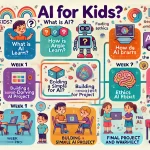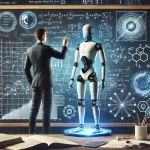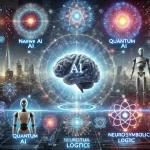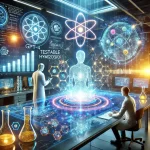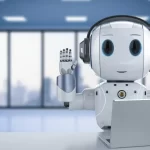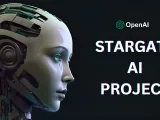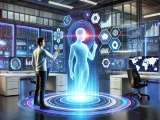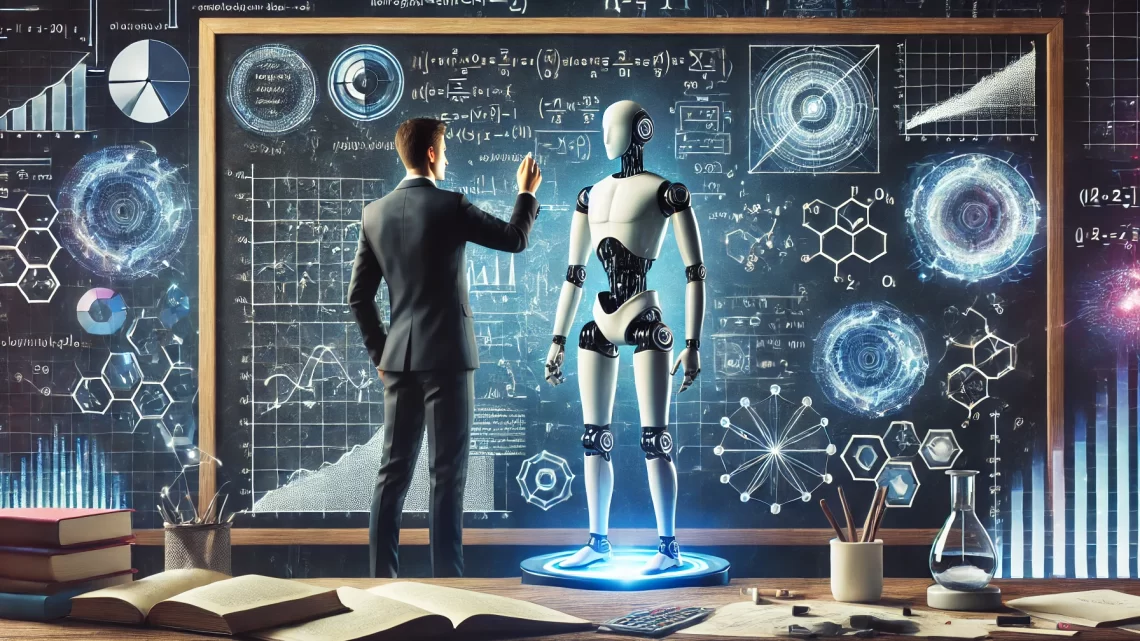
The Future of Artificial Intelligence: A 20-Year Odyssey
January 23, 2025Artificial Intelligence (AI) has already reshaped industries, economies, and daily life, but its journey is only beginning. Over the next two decades, advancements in AI will blur the lines between science fiction and reality, redefining human potential and societal structures. This article explores the trajectory of AI’s evolution, its transformative applications, and the world future generations may inherit.
The Evolution of AI Technology
The next 20 years will see AI transcend its current limitations, driven by breakthroughs in three key areas:
- Cognitive Leap: From Narrow to General Intelligence
Today’s AI excels at specific tasks (e.g., image recognition, language translation) but lacks contextual reasoning. By the 2040s, advancements in neuromorphic computing and hybrid architectures (combining neural networks with symbolic reasoning) may enable artificial general intelligence (AGI)—systems that learn, adapt, and problem-solve like humans. While true AGI remains contentious, even partial progress will revolutionize fields like scientific research, where AI could autonomously design experiments or discover cures for diseases. - Quantum Acceleration
Quantum computing will supercharge AI’s capabilities. By 2040, quantum-powered AI models could process vast datasets in seconds, unlocking breakthroughs in climate modeling, drug discovery, and cryptography. For instance, simulating molecular interactions for new materials or predicting extreme weather patterns with pinpoint accuracy could become routine. - Brain-Computer Interfaces (BCIs)
AI will merge with human cognition through BCIs. Imagine controlling devices with your thoughts or augmenting memory with neural implants. Companies like Neuralink are already pioneering this space; in 20 years, BCIs could democratize access to knowledge, enhance creativity, and even restore mobility for paralyzed individuals.
Transformative Applications
By 2044, AI’s integration into society will be seamless and ubiquitous:
- Healthcare Revolution
AI-driven personalized medicine will dominate. Algorithms will analyze genetic data, lifestyle habits, and real-time biometrics to predict illnesses before symptoms arise. Robotic surgeons, guided by AI, will perform complex procedures with sub-millimeter precision. Mental health support will come from empathetic AI companions capable of detecting emotional distress through voice or facial cues. - Education Reimagined
Traditional classrooms will give way to AI tutors that adapt to individual learning styles. Virtual reality (VR) and augmented reality (AR) will create immersive historical simulations or molecular biology labs accessible from home. Lifelong learning will become the norm as AI continuously upskills workers in response to job market shifts. - Sustainable Societies
AI will spearhead the fight against climate change. Smart grids powered by AI will optimize energy distribution, while autonomous drones replant forests and monitor endangered species. Carbon capture technologies, guided by machine learning, could reverse decades of emissions. - Space Exploration
AI will enable humanity’s expansion into space. Autonomous robots will build lunar bases, while AI astronauts manage interstellar missions to Mars and beyond. AI could even decode signals from extraterrestrial life, answering the age-old question: Are we alone?
Societal Shifts and Ethical Crossroads
The AI-augmented future will challenge societal norms:
- Economic Disruption
Automation will displace millions of jobs, but new roles will emerge in AI ethics, quantum programming, and human-AI collaboration. Universal Basic Income (UBI) may become necessary to address inequality, while “AI taxes” on corporate profits fund social safety nets. - Privacy and Autonomy
As AI permeates daily life, privacy concerns will intensify. Governments will grapple with regulating surveillance technologies while balancing security and civil liberties. Who owns the data generated by your brain-computer interface? Future generations may demand digital rights enshrined in law. - Ethical AI Governance
Preventing bias in AI decision-making (e.g., hiring, policing) will require global cooperation. International bodies akin to the UN may oversee AI development to prevent misuse in warfare or propaganda. The rise of AGI could spark philosophical debates: Should sentient machines have rights?
A Vision for 2044
In 20 years, a child born today might live in a world where:
- Diseases like Alzheimer’s and cancer are manageable chronic conditions.
- Climate disasters are predicted and mitigated months in advance.
- Human-AI hybrids pioneer art, music, and literature.
- Mars colonies thrive under the stewardship of AI systems.
Yet, this future hinges on humanity’s choices today. Ensuring equitable access to AI, prioritizing ethical frameworks, and fostering global collaboration will determine whether AI becomes humanity’s greatest ally or its existential risk.
Conclusion
The next two decades will redefine what it means to be human. AI will unlock unprecedented opportunities but also test our wisdom. Future generations may look back at this era as the turning point—when we chose to harness AI not just for efficiency, but for empathy; not for control, but for collective flourishing. The question is not what AI will become, but who we will become alongside it.




